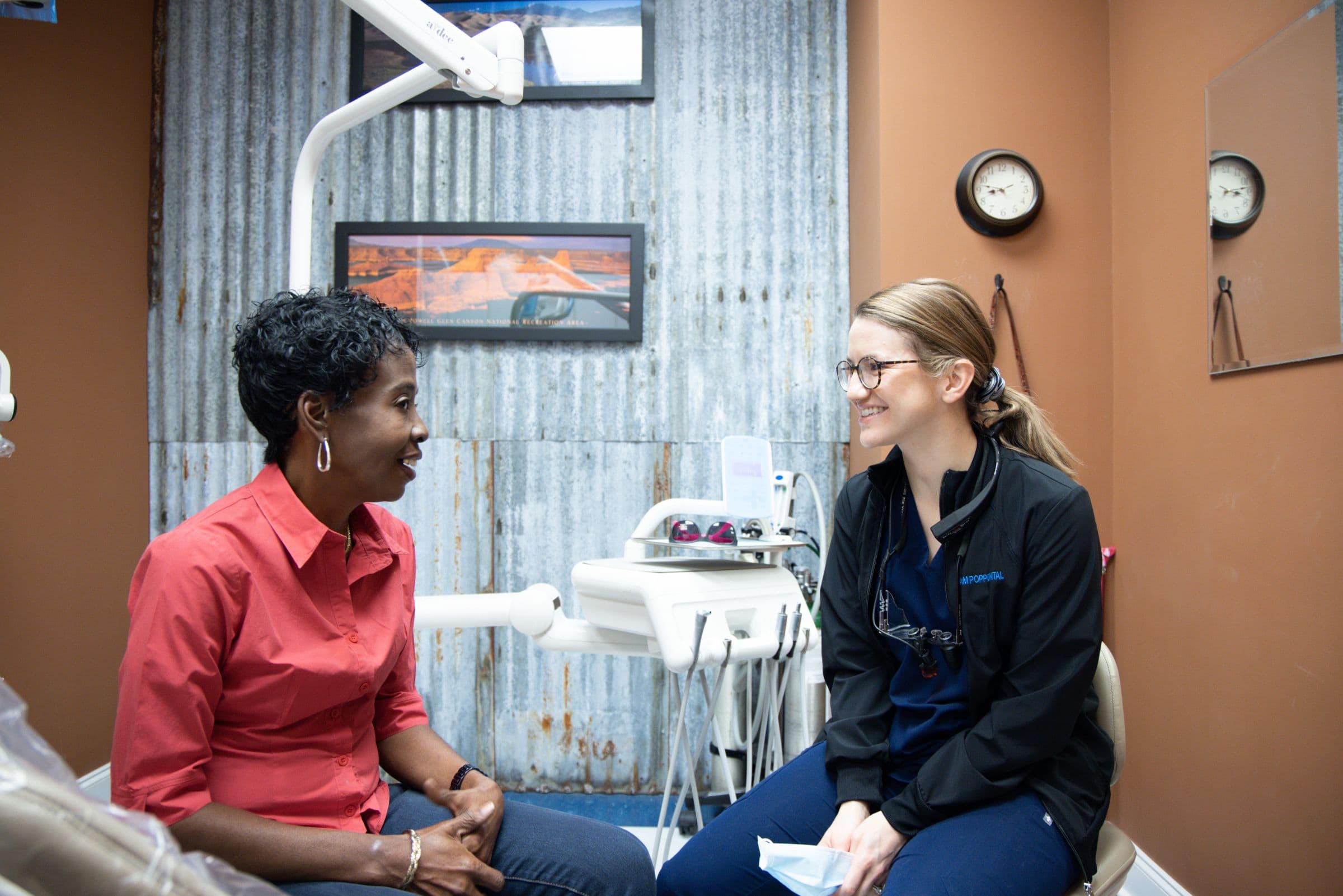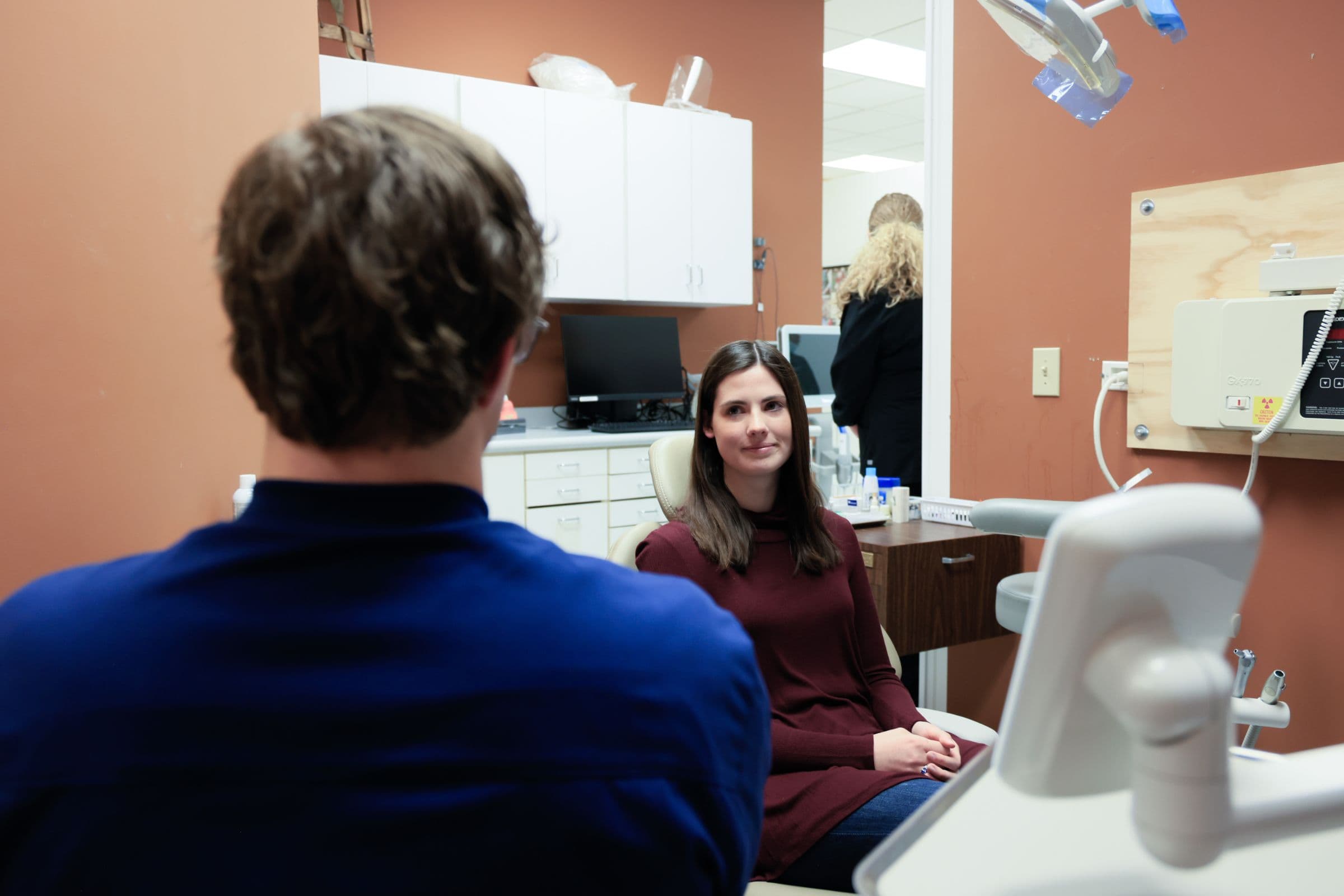Get Solutions for Your TMJ Pain
Do you have jaw or neck pain that affects your life? If you’ve been searching for a solution to TMJ pain without success, Dr. Leah Popp or Dr. Bryson Popp at Team Popp Dental can help!
What Is TMD/TMJ?
The temporomandibular joint (TMJ) connects your jaw to the temporal bones in your skull. This hinge allows you to move your jaw in all directions to chew, speak and yawn.
Temporomandibular disorders (TMD) are a group of conditions that involve issues with your TMJ and the facial muscles that control its movement. Many people experience these symptoms all around Chattanooga.
TMD occurs when the temporomandibular joint is damaged or deteriorated or when the muscles surrounding the joint malfunction, causing imbalanced jaw movement, causing chronic muscle pain and spasms.
TMD can be caused by trauma, such as injury or dislocation, or an improper bite, which affects the chewing muscles. Stress and related behaviors may aggravate the condition, such as clenching the jaw or grinding the teeth. Inflammatory disorders, such as rheumatoid arthritis, can also cause TMD.

Signs of TMD/TMJ
- Jaw pain or soreness that is more prevalent in the morning or late afternoon
- Jaw pain associated with chewing, biting, or yawning
- Clicking noises when opening or closing the mouth
- Difficulty opening and closing the mouth
- Locking or stiffness of the jaw when talking, yawning, or eating
- Teeth sensitivity not associated with dental problems
- Headaches or neck pain
- Earache not associated with an ear infection
Treatment for TMJ
Dr. Popp can handle many TMD cases with simple treatments and lifestyle modifications, such as:
- Eating soft foods
- Using a warm compress
- Taking OTC non-aspirin pain relief
In more severe cases, Dr. Leah Popp or Dr. Bryson Popp may recommend physical therapy, appliance therapy (a splint, mouthguard or bite plate), or medication.
Bruxism
Bruxism is the grinding of the teeth and is usually accompanied by the clenching of the jaw. Researchers classify bruxism as a habitual behavior as well as a sleep disorder.
Bruxism can have several causes, including bite problems, stress, medical conditions, or certain medications. It can lead to earache, headache, sore and painful jaw, shortening and blunting of teeth, tooth sensitivity, notching the teeth at the gum line, and fractures. It can also lead to muscle pain and TMD.
There are several treatment options to treat bruxism, including mouthguards, bite adjustments, biofeedback devices, and the repair of damaged teeth. A dental exam at our Hixson or Gunbarrel office will help Dr. Leah Popp or Dr. Bryson Popp determine which option is best for you.
